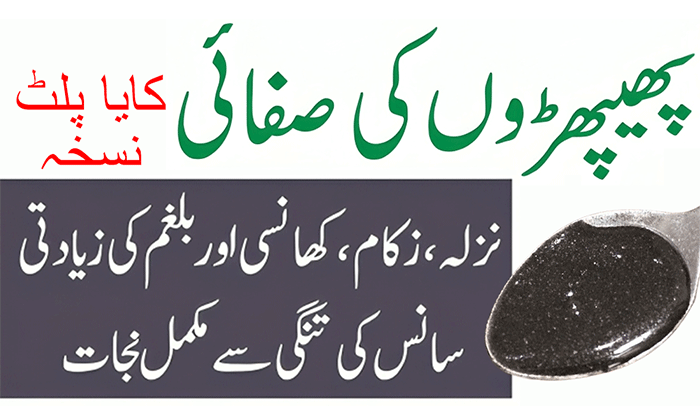
Phlegm and mucus are terms often used interchangeably, but they refer to different substances produced by the body. When it comes to respiratory health, excessive phlegm or mucus in the lungs can be uncomfortable and concerning. Understanding the causes, symptoms, and management of this condition is crucial for maintaining respiratory well-being.
What are Phlegm and Mucus? Phlegm and mucus are both substances produced by the body’s mucous membranes. They serve as protective mechanisms to trap and eliminate foreign particles, such as bacteria and dust, from the respiratory system. While phlegm is produced in the lower respiratory tract, mucus is produced throughout the body, including the nasal passages and throat.
Phlegm and Mucus in Lungs Home Remedies
Causes of Excessive Phlegm and Mucus in the Lungs:
Respiratory Infections: Common colds, flu, bronchitis, and pneumonia can all lead to increased production of phlegm and mucus as the body works to clear the infection.
Allergies: Allergic reactions to pollen, dust, pet dander, or other environmental allergens can cause inflammation in the respiratory tract, leading to excess mucus production.
Smoking: Tobacco smoke irritates the respiratory tract, causing inflammation and increased mucus production. Chronic smoking can also damage the cilia, tiny hair-like structures in the lungs responsible for clearing mucus.
Air Pollution: Exposure to pollutants such as vehicle exhaust, industrial emissions, and smoke can irritate the respiratory tract and trigger mucus production.
Gastroesophageal Reflux Disease (GERD): Acid reflux can lead to irritation and inflammation in the throat and lungs, resulting in excess mucus production.
Asthma: People with asthma may experience increased mucus production during asthma attacks or periods of worsened symptoms.
Symptoms of Excessive Phlegm and Mucus:
- Persistent coughing, often with phlegm or mucus.
- Chest congestion or tightness.
- Difficulty breathing or shortness of breath.
- Wheezing or whistling sounds when breathing.
- Runny or stuffy nose.
- Postnasal drip, where mucus drips down the back of the throat.
- Sore throat or hoarseness.
Home Remedies
Steam Inhalation:
Inhaling steam can help loosen congestion and clear mucus from your airways. Boil water in a pot, remove it from the heat, and drape a towel over your head to create a tent. Lean over the pot, being cautious not to get too close to avoid burns, and inhale the steam for about 10 minutes. Adding a few drops of essential oils like eucalyptus or peppermint can enhance the decongestant effect.
Warm Saltwater Gargle:
Gargling with warm salt water can help soothe a sore throat and loosen mucus in your throat and chest. Mix half a teaspoon of salt into a glass of warm water and gargle the solution for about 30 seconds before spitting it out. Repeat this several times a day for relief.
Honey and Lemon:
Honey has natural antibacterial properties, while lemon contains vitamin C, which can help boost your immune system. Mix a tablespoon of honey and the juice of half a lemon into a cup of warm water or herbal tea. Drink this soothing concoction several times a day to ease throat irritation and reduce mucus production.
Ginger Tea:
Ginger has anti-inflammatory properties and can help alleviate respiratory symptoms like coughing and congestion. To make ginger tea, grate a small piece of fresh ginger root into a cup of hot water. Let it steep for 5-10 minutes, then strain and drink. You can add honey or lemon for extra flavor and benefits.
Humidifier:
Using a humidifier in your home can add moisture to the air, helping to thin out mucus and ease breathing. Keep the humidity level between 40-60% to create an optimal environment for respiratory health. Make sure to clean your humidifier regularly to prevent mold and bacteria growth.
Other Treatment Options:
Stay Hydrated: Drinking plenty of fluids helps thin mucus, making it easier to expel from the lungs.
Humidify the Air: Using a humidifier can add moisture to the air, which can help loosen mucus and ease congestion.
Over-the-Counter Medications: Antihistamines, decongestants, and expectorants can help alleviate symptoms associated with excessive phlegm and mucus. However, it’s essential to use these medications as directed and consult a healthcare professional if symptoms persist.
Avoid Irritants: Limit exposure to cigarette smoke, air pollution, and other respiratory irritants.
Practice Good Respiratory Hygiene: Cover your mouth and nose when coughing or sneezing, and wash your hands frequently to prevent the spread of infections.
Quit Smoking: If you smoke, quitting can significantly improve respiratory health and reduce mucus production over time.
Manage Allergies: Avoid allergens whenever possible and consider using allergy medications or immunotherapy to reduce symptoms.
When to Seek Medical Attention: While mild cases of excessive phlegm and mucus can often be managed at home, it’s essential to seek medical attention if symptoms persist or worsen. Additionally, if you experience any of the following symptoms, you should seek prompt medical care:
- High fever.
- Severe chest pain.
- Bluish lips or fingertips.
- Difficulty speaking or swallowing.
- Sudden onset of shortness of breath.
FAQs
FAQ 1: What Makes Phlegm and Mucus Build Up in Lungs?
Answer: Lots of things can cause too much phlegm and mucus in your lungs. It could be from a cold, flu, or breathing in stuff like smoke or pollution. Even allergies or asthma can make it happen. Not drinking enough water can also make your mucus thicker and harder to get rid of.
FAQ 2: Is It Good to Cough Up Phlegm and Mucus?
Answer: Yes, it’s helpful to cough up phlegm and mucus because it clears your airways. But not all coughing is the same. If you’ve been coughing a lot for a long time, it might mean something’s wrong and you should see a doctor.
FAQ 3: How Can I Make Less Phlegm and Mucus?
Answer: You can try a few things to make less phlegm and mucus. Drink plenty of water to keep your mucus thin. Avoid smoke and things that bother your breathing. Using a humidifier at home can also help. Eating healthy foods like fruits and veggies can make a difference too.
FAQ 4: Can Medicine from the Store Help?
Answer: Yes, there are medicines you can get without a prescription that might help. Some thin out mucus, making it easier to cough up. Others can help with stuffy noses. But always follow the directions and talk to a doctor if you’re not sure.
FAQ 5: When Should I Talk to a Doctor About Phlegm and Mucus?
Answer: If you’ve been coughing a lot for more than two weeks or if you have other symptoms like chest pain, trouble breathing, or coughing up blood, it’s a good idea to see a doctor. These could be signs of something more serious that needs treatment.
Conclusion: Too much phlegm and mucus in your lungs can be annoying and usually happens because of things like colds, allergies, smoking, or asthma. Knowing what causes it and how to deal with it is important for keeping your lungs healthy. Drinking enough water, avoiding things that bother your breathing, and keeping your surroundings clean can help ease symptoms. But if things don’t get better or get worse, it’s important to see a doctor for the right treatment.








